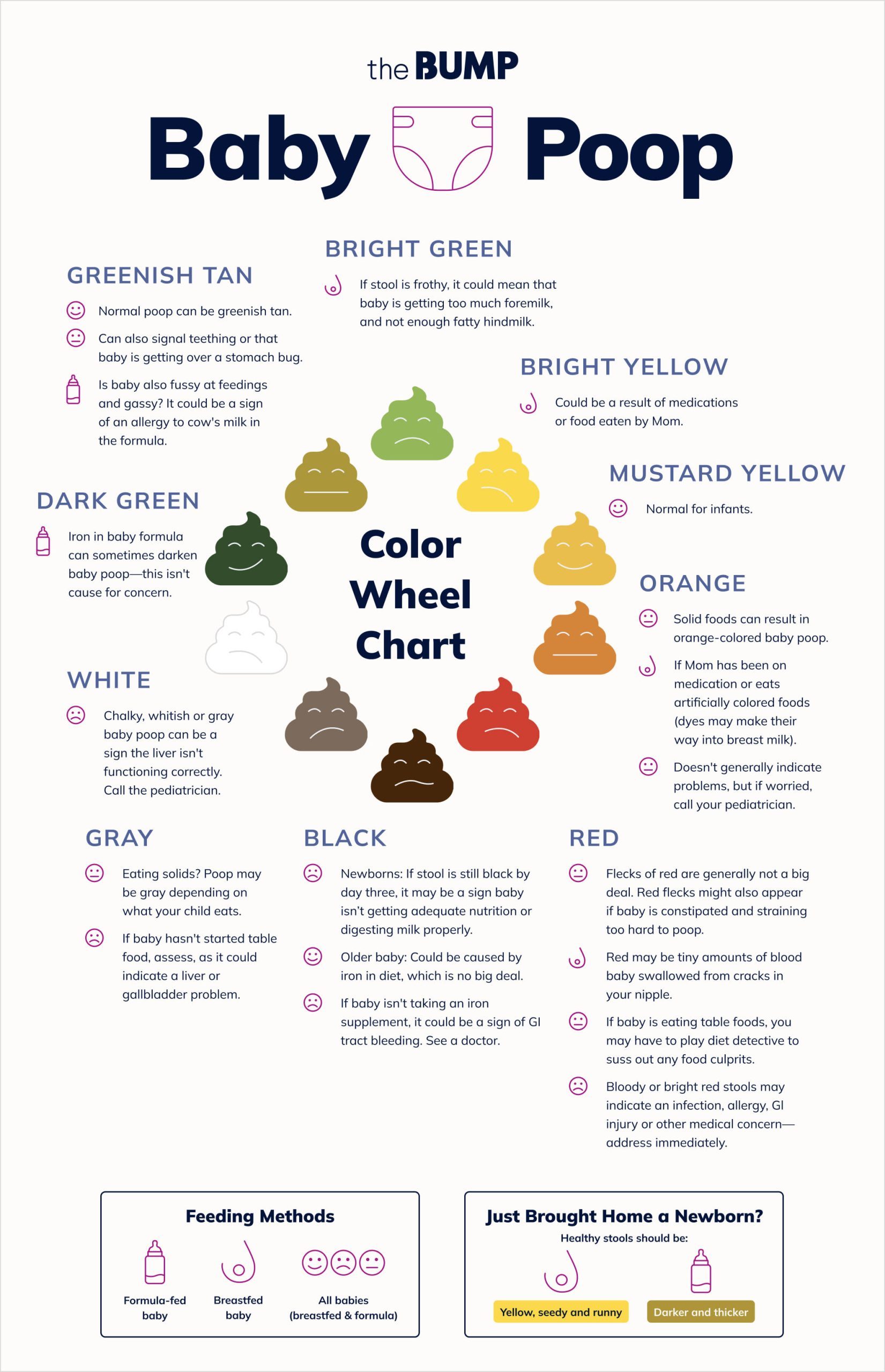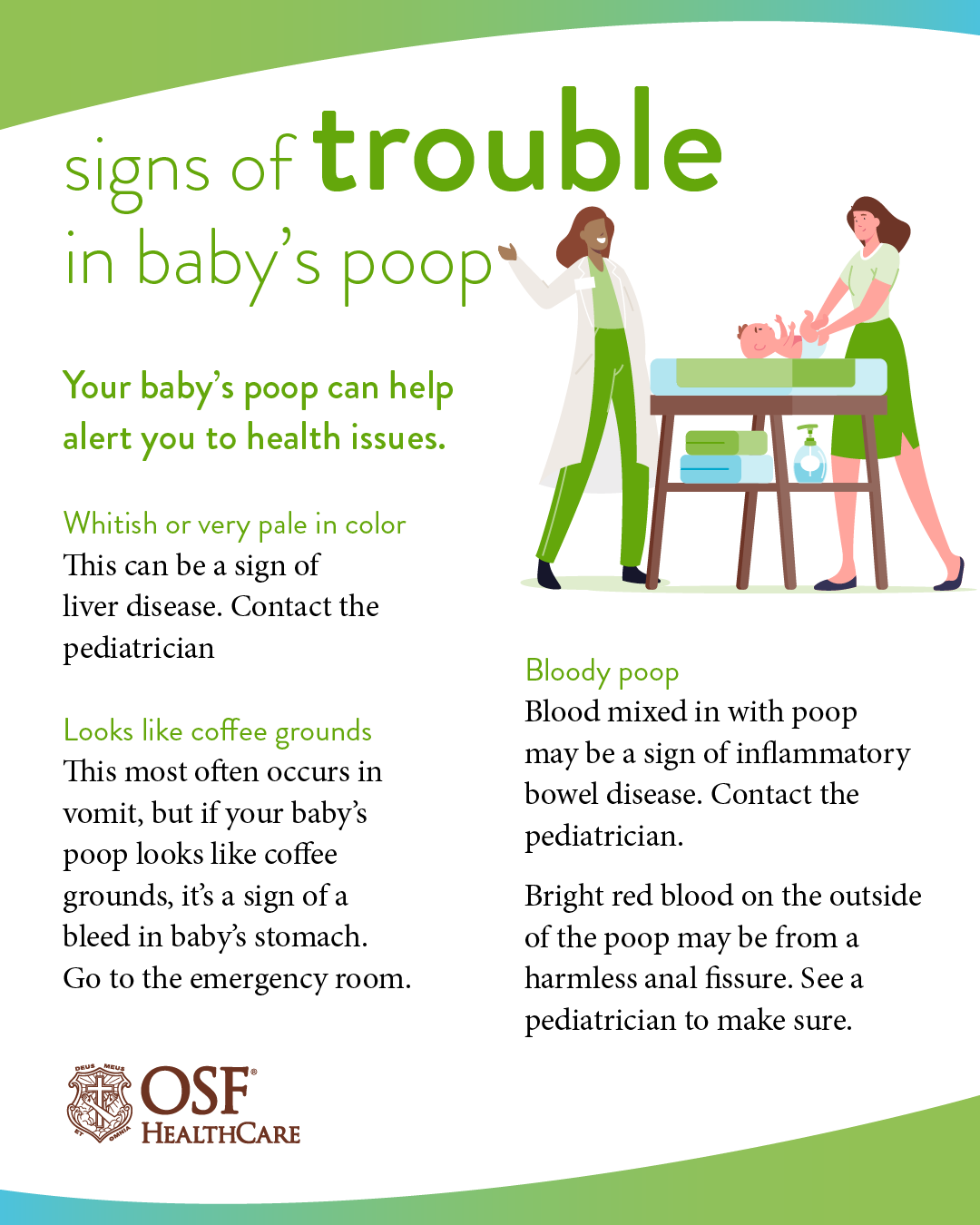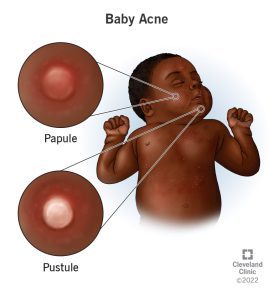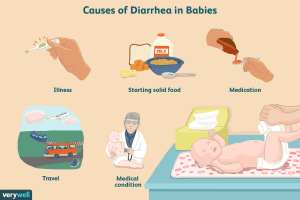Baby’s poop is greenish is often caused by an imbalance of bile in the digestive system. This can be due to a variety of factors, such as a rapid transition from breast milk to formula or dietary changes.
It’s essential to monitor the baby’s overall health and well-being and consult with a pediatrician if the greenish poop persists or is accompanied by other concerning symptoms. Understanding the potential reasons for greenish poop and taking appropriate steps to address any underlying issues can help ensure the baby’s health and comfort.
Additionally, ensuring that the baby is receiving suitable nutrition and hydration is vital for their overall development and digestive health. Regular communication with healthcare providers can provide valuable guidance and support in addressing this common concern.
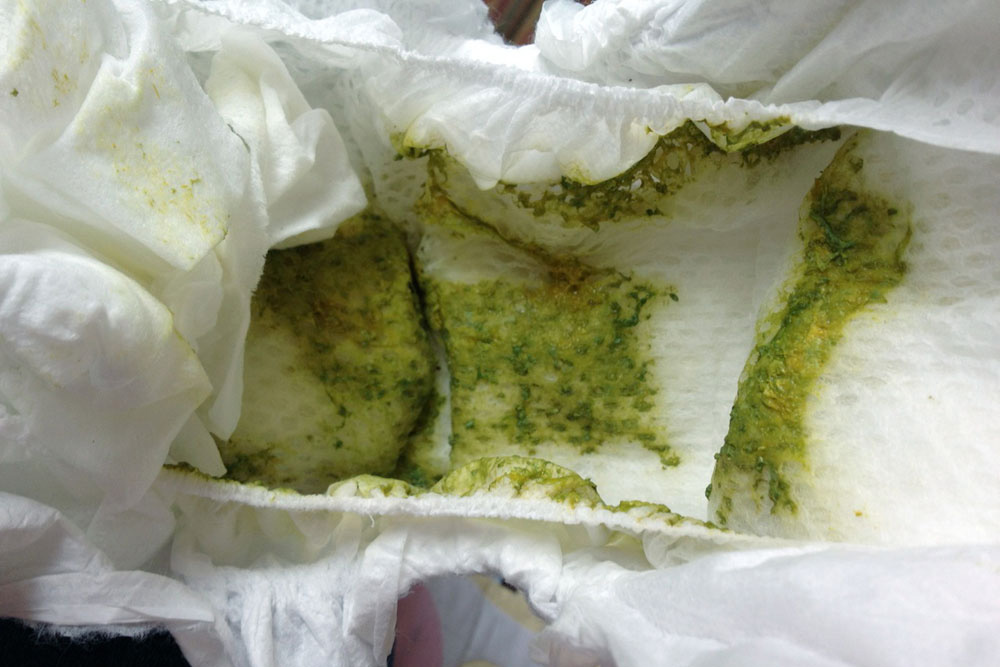
Understanding Greenish Baby Poop
Baby poop colors can vary, and greenish baby poop is a common concern among parents. It’s essential to understand what the color signifies.
Normal Vs. Abnormal
Normal: Greenish baby poop may be due to diet changes or iron supplements.
Abnormal: Consult a pediatrician if greenish poop is persistent, accompanied by other symptoms.
Significance Of Color
Greenish color: Indicates the presence of bile or a rapid transit of stool through the intestines.
Monitor: Keep an eye on other symptoms like diarrhea or blood in the stool.
Remember, every baby is unique, and their poop colors may vary. If in doubt, always seek advice from a healthcare provider.
Common Causes Of Green Baby Poop
Green baby poop can be alarming for parents, but it’s not always a cause for concern. There are several common causes of green baby poop that parents should be aware of. Understanding these causes can help ease worries and provide assurance that the color change is often a result of natural bodily processes. Below, we’ll discuss common factors that can contribute to green baby poop, including dietary factors, mucus in stool, and gastrointestinal infections.
Dietary Factors
Baby’s poop can turn green due to dietary factors, such as consuming iron-fortified formula or a mother consuming lots of leafy greens while breastfeeding. These factors can affect the baby’s digestive system and lead to greenish stools.
Mucus In Stool
Presence of mucus in the stool can also cause it to appear green. Mucus can indicate digestive issues or allergies, and parents should consult a healthcare provider if this is observed in their baby’s poop.
Gastrointestinal Infections
Gastrointestinal infections, such as rotavirus or other viral infections, can lead to green baby poop. These infections may cause changes in bowel movements, including shifts in stool color.
When To Seek Medical Advice
If your baby’s poop is greenish, it’s natural to be concerned. While green stool can sometimes be a result of normal digestion or changes in diet, there are instances when it may be necessary to seek medical advice. This section will cover the duration of green stool and other associated symptoms to help you determine when it’s time to consult a healthcare professional.
Duration Of Green Stool
The duration for which your baby’s poop remains green can be an important factor in deciding whether to seek medical advice. In most cases, a few episodes of green stool are not a cause for alarm, especially if your baby is otherwise healthy and showing no other concerning symptoms.
If the green stool persists for more than a day or is accompanied by other symptoms, it’s advisable to contact your pediatrician. It could be an indication of an underlying condition that needs attention. Remember that each baby is different, so it’s essential to trust your instincts as a parent and seek medical advice as needed.
Other Associated Symptoms
While green stool on its own may not always indicate a serious problem, paying attention to other associated symptoms can provide valuable insight into your baby’s health. If your little one experiences any of the following symptoms alongside greenish poop, it’s recommended to reach out to your healthcare provider for further evaluation:
- Blood in the stool
- Diarrhea or loose stools
- Frequent vomiting or poor feeding
- Fever
- Irritability or unexplained crying
- Weight loss or failure to gain weight
- Abdominal pain or bloating
Paying attention to these additional symptoms can assist your pediatrician in making a more accurate diagnosis and providing appropriate medical advice or treatment.
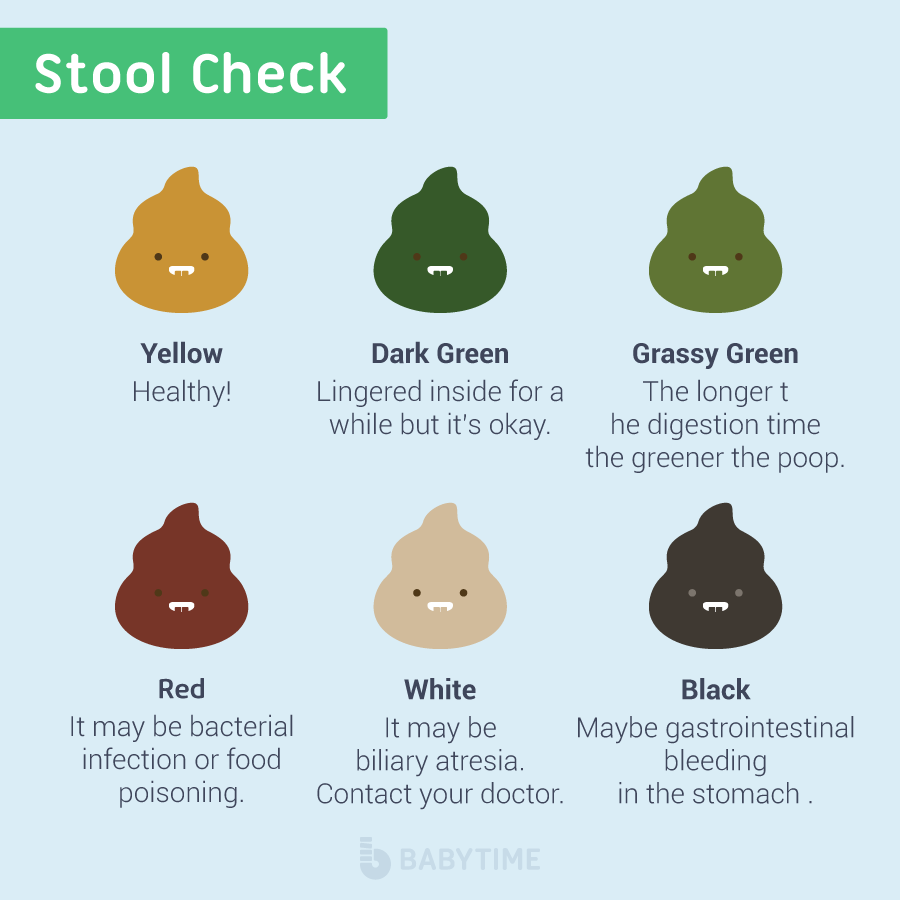
Understanding Normal Bowel Movements In Infants
Understanding normal bowel movements in infants is essential for parents. If your baby’s poop is greenish, it could be due to an imbalance in their diet or a stomach bug. Keep an eye on their overall health and consult a pediatrician if you have concerns.
Understanding Normal Bowel Movements in Infants Breastfed vs. Formula-fed Babies Breastfeeding and formula-feeding are two common methods of nourishing infants. In terms of bowel movements, there are some differences between the two. Breastfed babies typically have more frequent bowel movements compared to formula-fed babies. This is because breast milk is easily digested and passes through the baby’s digestive system relatively quickly.
On the other hand, formula contains proteins that can take longer to break down, resulting in less frequent bowel movements. Frequency and Texture The frequency and texture of an infant’s bowel movements can provide valuable insights into their digestive health. Here’s what you need to know: 1. Frequency: It is completely normal for infants to pass stool multiple times a day, especially during the first few months of life. Breastfed babies may have bowel movements after every feeding, while formula-fed babies may have fewer but bulkier bowel movements.
As long as the baby’s stool is soft and of the appropriate color, there is usually no cause for concern. 2. Texture: The texture of an infant’s stool can vary depending on their age and diet. Breastfed babies typically have loose, seedy stools that resemble mustard or cottage cheese. This is because breast milk consists of easily digestible proteins and fats. On the other hand, formula-fed babies may have firmer and more formed stools. If your baby’s poop is greenish in color, it can be normal in many cases. Greenish poop is often a result of the baby’s rapid digestion, especially if they are breastfed.
As the food passes through their system quickly, it does not have enough time to change from green to the normal yellow color. However, if the green poop is accompanied by other symptoms such as diarrhea, excessive fussiness, or blood in the stool, it is important to consult a pediatrician. These signs may indicate an underlying issue that requires medical attention. In conclusion, understanding your baby’s bowel movements is an essential aspect of their overall well-being.
Knowing what to expect in terms of frequency and texture can help you determine if everything is normal or if there may be a cause for concern. Whether your baby is breastfed or formula-fed, variations in poop color, such as greenish hues, can often be explained by factors like rapid digestion and should not necessarily be a cause for alarm.
Tips For Parents
As a parent, it’s natural to be concerned about your baby’s health and well-being. One common concern many parents have is the color of their baby’s poop. Greenish poop can be alarming, but in most cases, it is nothing to worry about. In this article, we will provide you with useful tips on maintaining hygiene and making dietary adjustments to ensure your baby’s poop stays healthy and normal.
Maintaining Hygiene
Proper hygiene practices are important not only for your baby’s health but also for your sanity. Here are some simple yet effective ways to maintain hygiene:
- Always wash your hands thoroughly before and after changing your baby’s diaper.
- Ensure that the diaper changing area is clean and sanitized.
- Use fragrance-free and hypoallergenic wipes to clean your baby’s bottom to avoid any skin irritations.
- Dispose of dirty diapers in a proper and hygienic manner.
- Regularly clean and sanitize your baby’s toys and play area to prevent the spread of germs.
Dietary Adjustments
In some cases, the greenish color of your baby’s poop may be due to their diet. Making certain dietary adjustments can help regulate the color of their poop:
- If you are breastfeeding, ensure you have a well-balanced diet that includes plenty of vegetables and fruits.
- If you are formula-feeding, consult your pediatrician to ensure the formula is suitable for your baby.
- Introduce solids gradually and observe how your baby’s body reacts to different foods. Certain foods, such as spinach or peas, can cause greenish poop.
- Ensure your baby stays hydrated by offering them water or breast milk/formula frequently, depending on their age.
Remember, every baby is unique, and their poop can vary in color and consistency. However, if you notice any other concerning symptoms in addition to greenish poop, such as fever, vomiting, or excessive fussiness, it’s important to consult your pediatrician for further evaluation. By maintaining hygiene and making necessary dietary adjustments, you can help ensure your baby stays healthy and their poop remains within the normal range.
Consulting A Pediatrician
Baby’s poop appearing greenish can be a cause of concern for parents. While there can be various reasons for this change in color, it is always recommended to consult a pediatrician for a professional opinion.
Importance Of Professional Opinion
- Pediatricians are experts in child health and can provide accurate diagnosis.
- Seeking a professional opinion helps in ruling out serious underlying issues.
- Timely consultation can prevent unnecessary anxiety for parents.
Diagnostic Procedures
- Pediatricians may recommend stool analysis to determine the cause.
- Physical examination can provide insight into the baby’s overall health.
- Blood tests might be conducted to check for any underlying conditions.
Consulting a pediatrician is the best course of action if you notice your baby’s poop is greenish. With their expertise and diagnostic procedures, they can provide accurate insights and ensure the well-being of your little one.
Home Remedies And Solutions
When it comes to addressing greenish poop in babies, there are simple home remedies and solutions that can help resolve this issue naturally. Below are some effective methods:
Probiotics For Babies
- Probiotics can restore the balance of healthy gut bacteria.
- Offering probiotic-rich foods like yogurt is beneficial.
- Consult with a pediatrician before introducing probiotics to infants.
Increase In Fluid Intake
- Encourage more breast milk or formula to boost hydration.
- Water intake can aid in digestion and stool normalization.
- Ensure the baby is hydrated to promote regular bowel movements.
These home remedies such as introducing probiotics and increasing fluid intake can effectively help in resolving greenish poop in babies.
Educating Others And Dispelling Myths, Sharing Knowledge With Caregivers
As parents, we play a crucial role in educating caregivers about our baby’s health. By sharing accurate information, we can empower them to make informed decisions. From discussing how a baby’s diet can affect stool color to providing resources for further reading, we can cultivate a supportive network of caregivers who understand and support our child’s health.
Debunking Misconceptions
There are many misconceptions surrounding a baby’s poop, and it’s essential to disprove these myths to ensure proper understanding. By addressing common misconceptions such as greenish stool indicating a serious health issue, parents can alleviate unnecessary worry and promote a more accurate understanding of infant digestion and bowel movements.
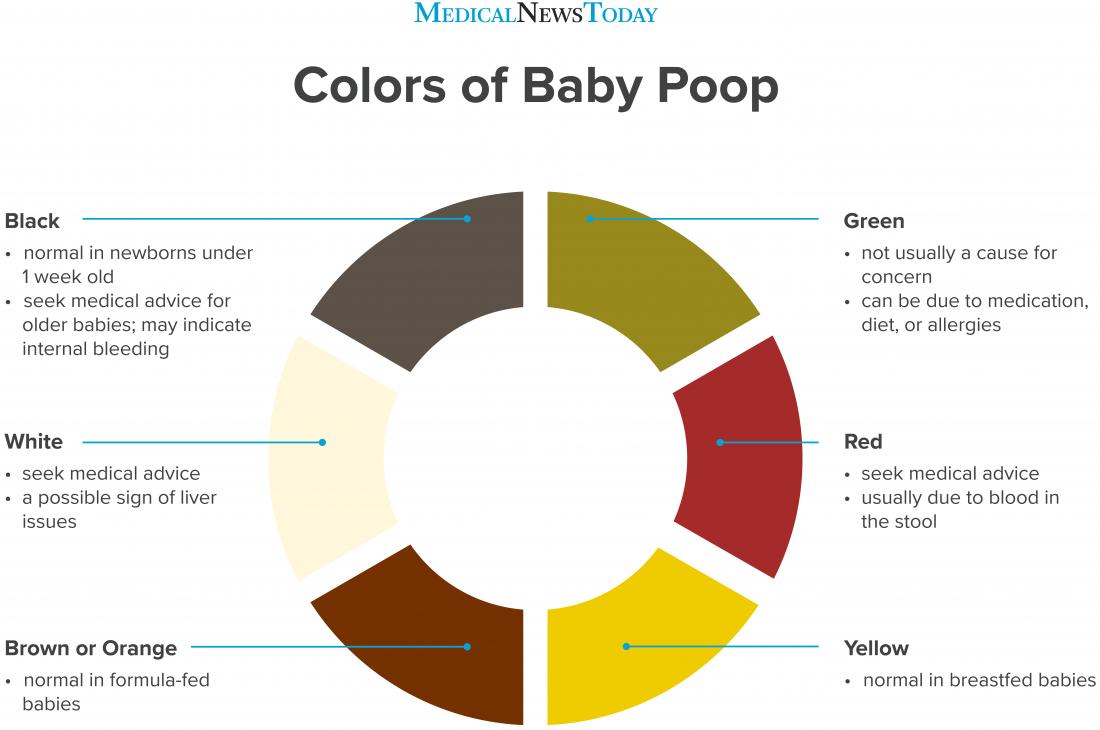
What Does Greenish Poop Mean In Babies?
Greenish poop in babies could indicate an imbalance in their digestive system. It may be caused by various factors, such as diet changes or infections. Consult a pediatrician for proper evaluation and guidance.
Can Overfeeding Baby Cause Green Poop?
Yes, overfeeding can cause green poop in babies due to excessive bilirubin in the intestines.
What Does Green Poop Mean In Kids?
Green poop in kids could indicate a stomach bug or dietary changes. It may also be due to consuming green-colored foods. However, if the green poop persists or is accompanied by other symptoms, it’s essential to consult a pediatrician for further evaluation and advice.
When Should I Be Concerned About Green Poop?
Green poop can be concerning if it persists or is accompanied by other symptoms like abdominal pain or fever. It may indicate a variety of causes including diet changes, infection, or digestive disorders. If you are worried about green poop, it’s best to consult a healthcare professional for advice.
Conclusion
In short, if your baby’s poop is greenish, it could be due to various reasons like diet or digestive issues. It’s important to monitor these changes and consult a pediatrician if you have concerns. Remember, every baby is unique, and their bodily functions can vary.
Pay attention to their overall health for peace of mind.

